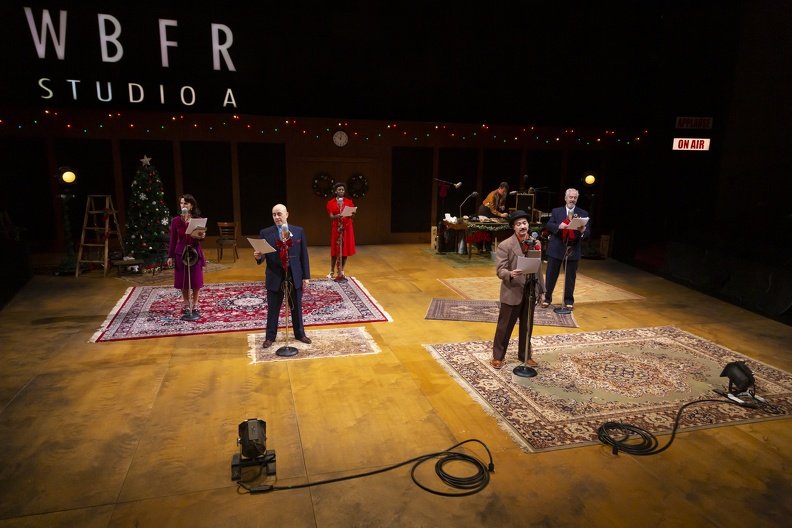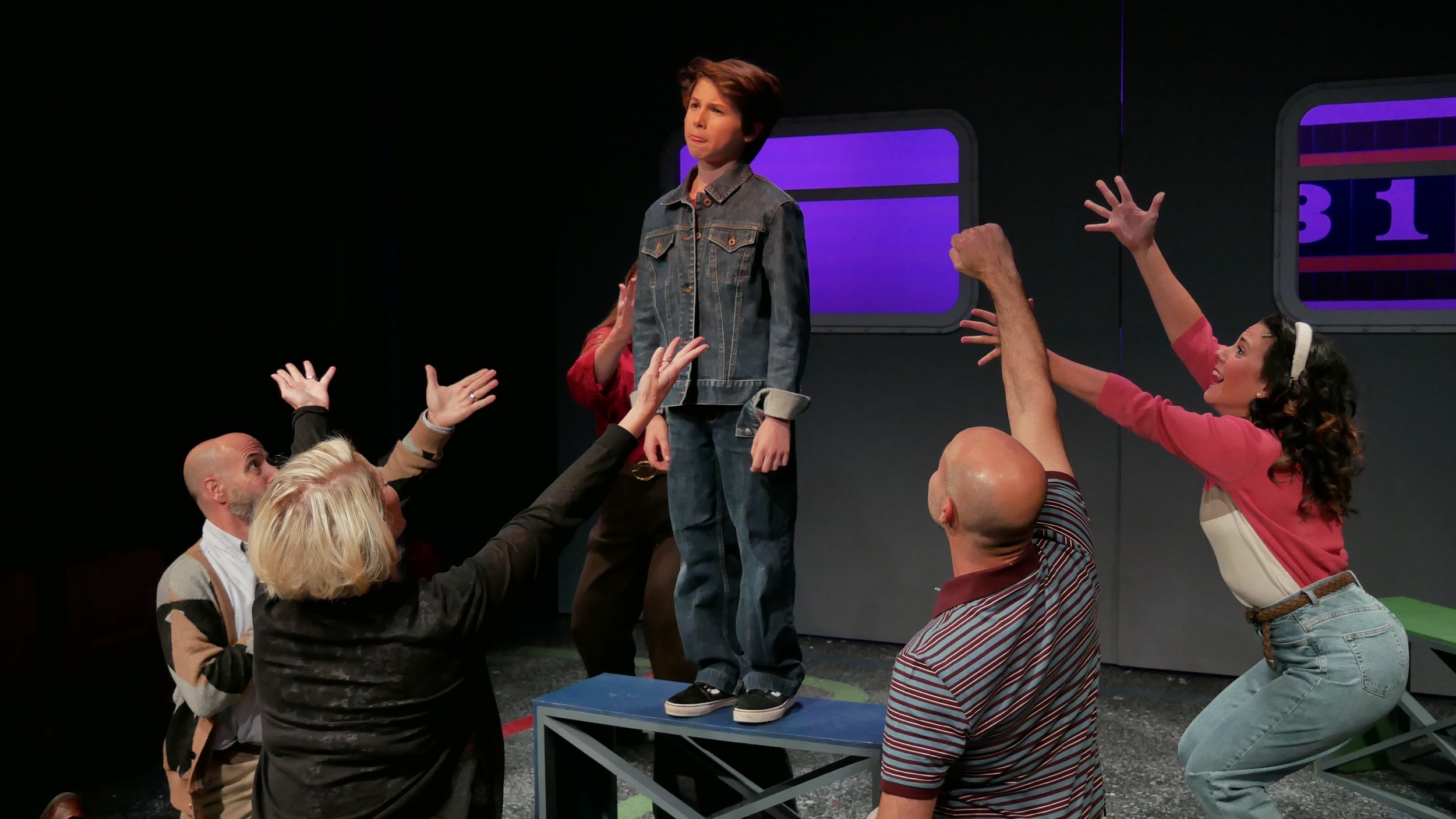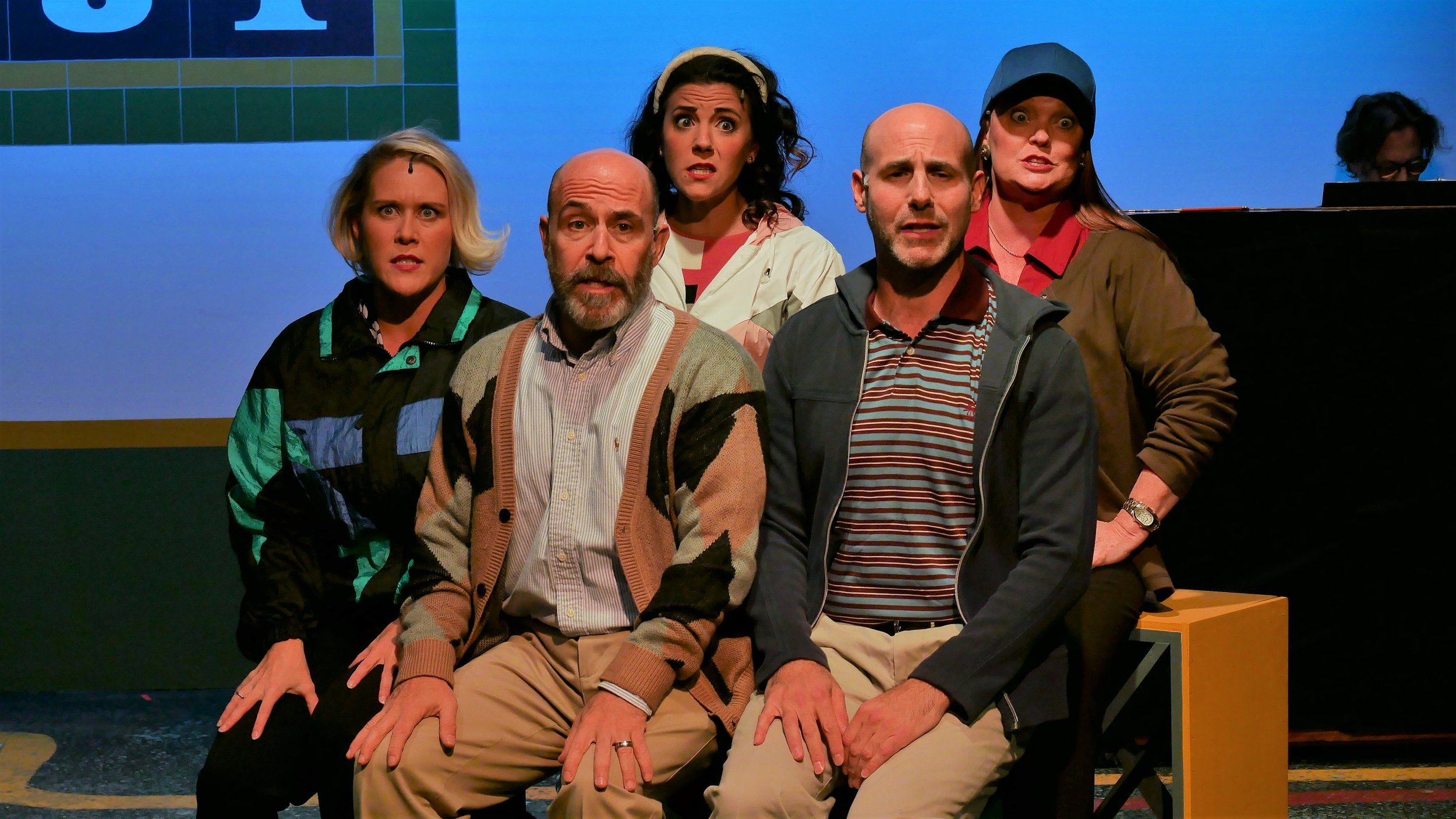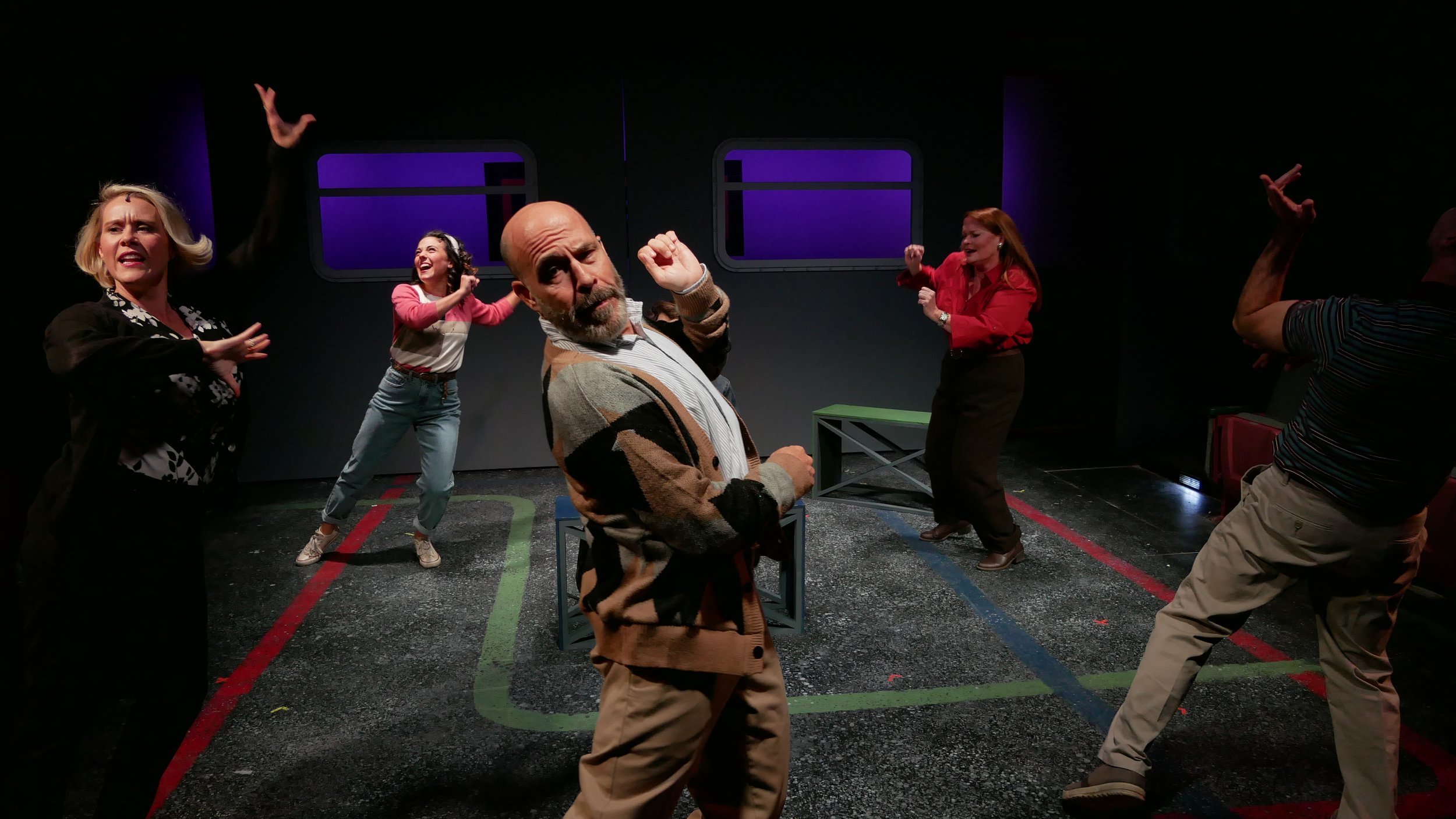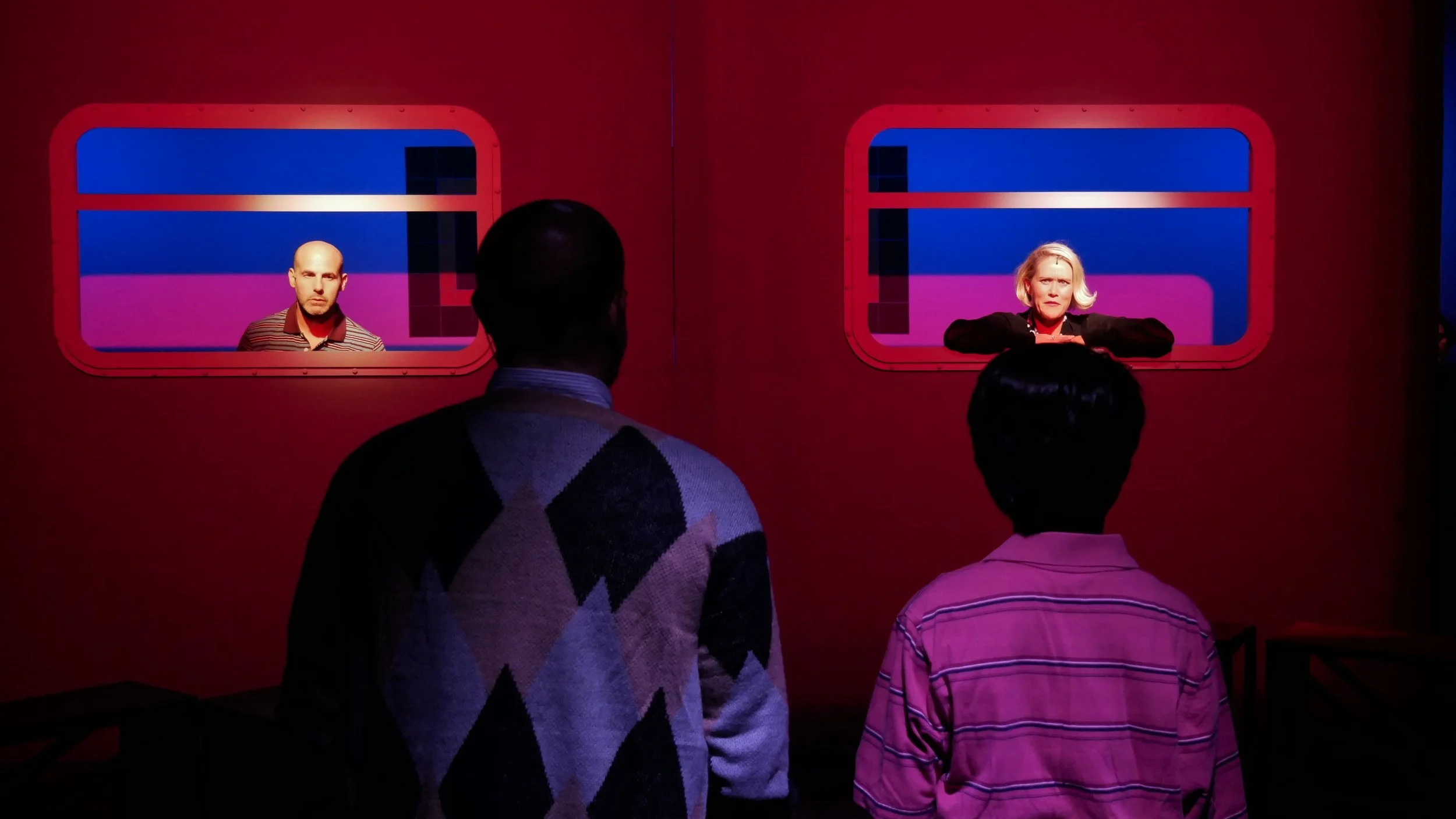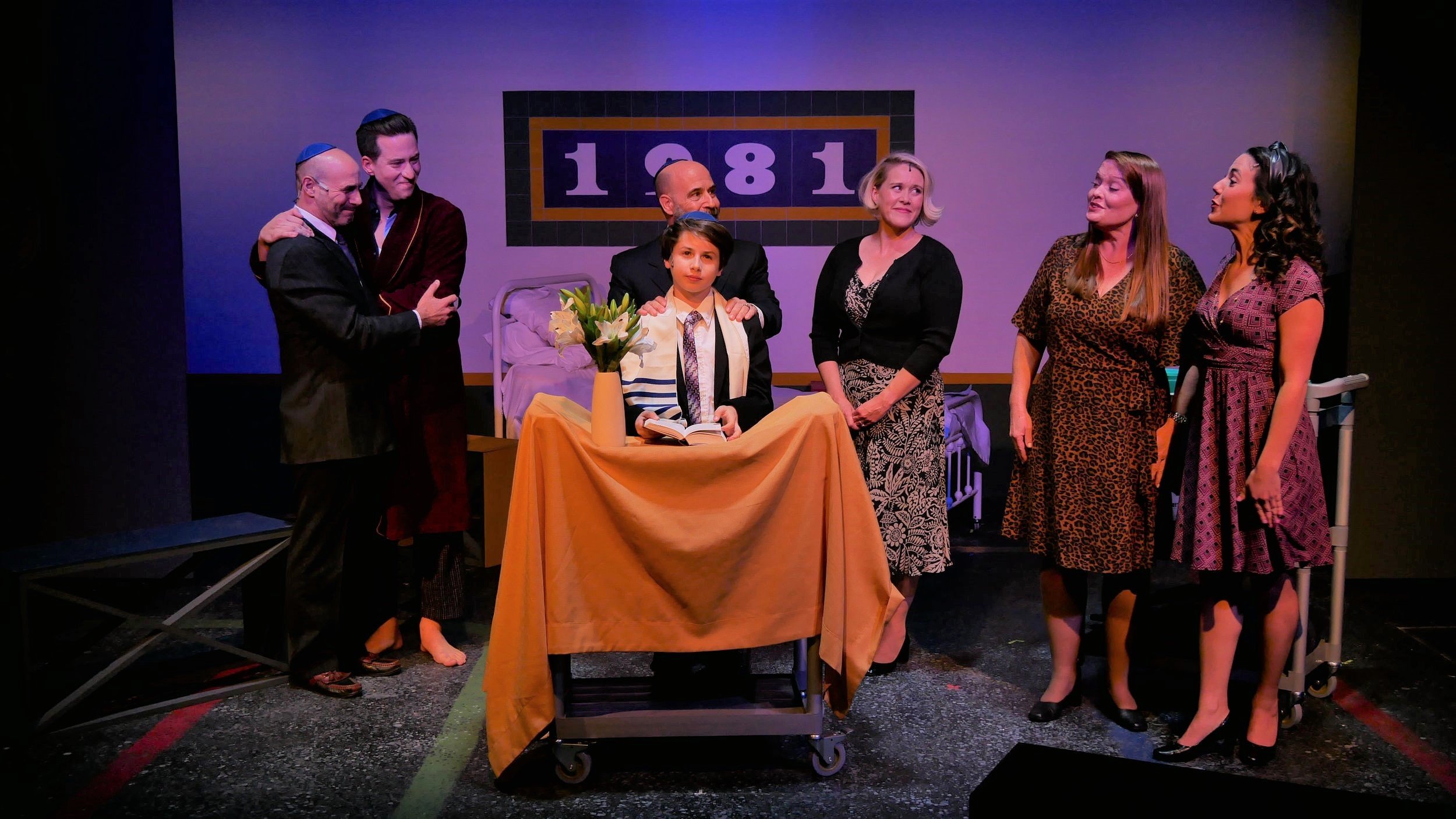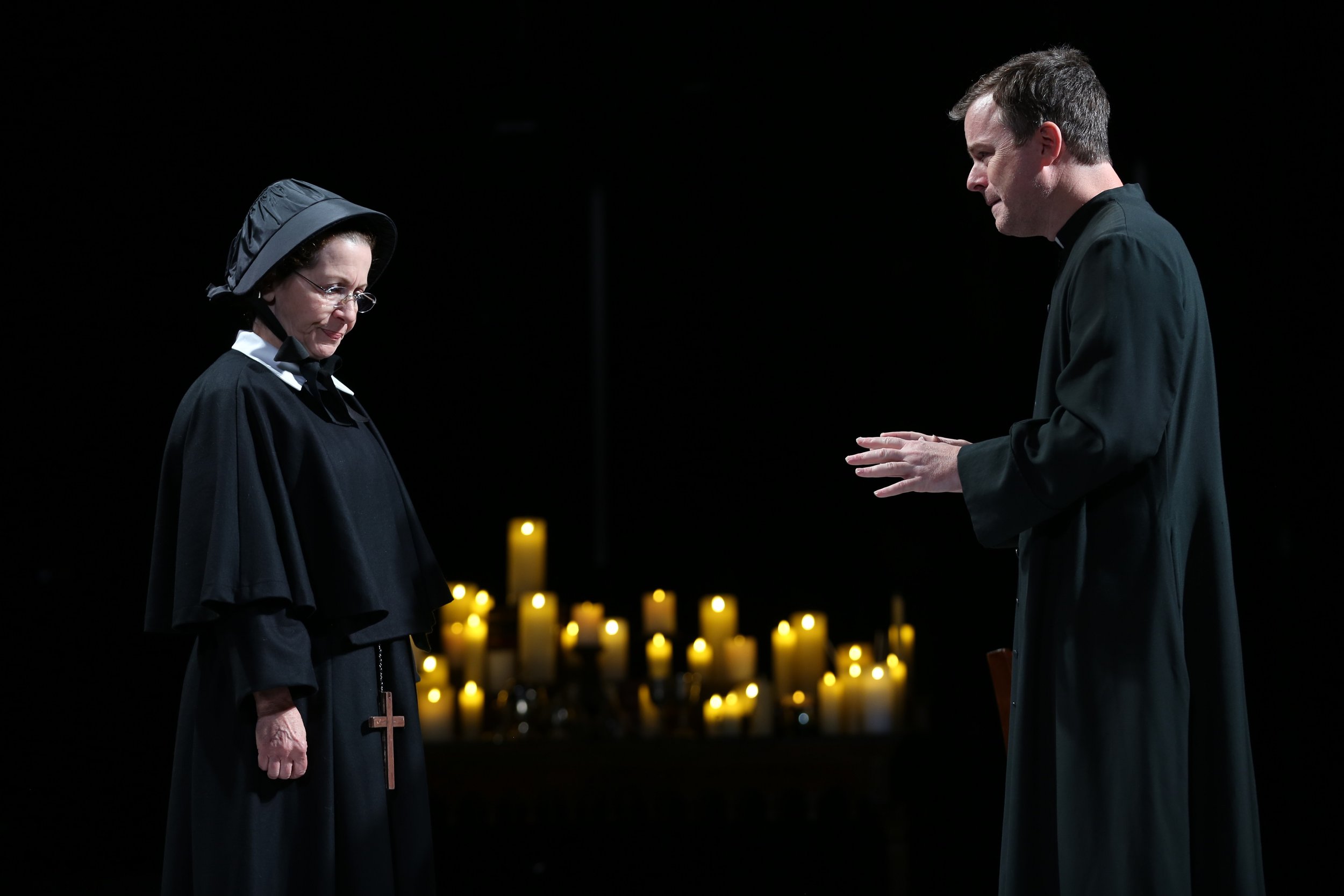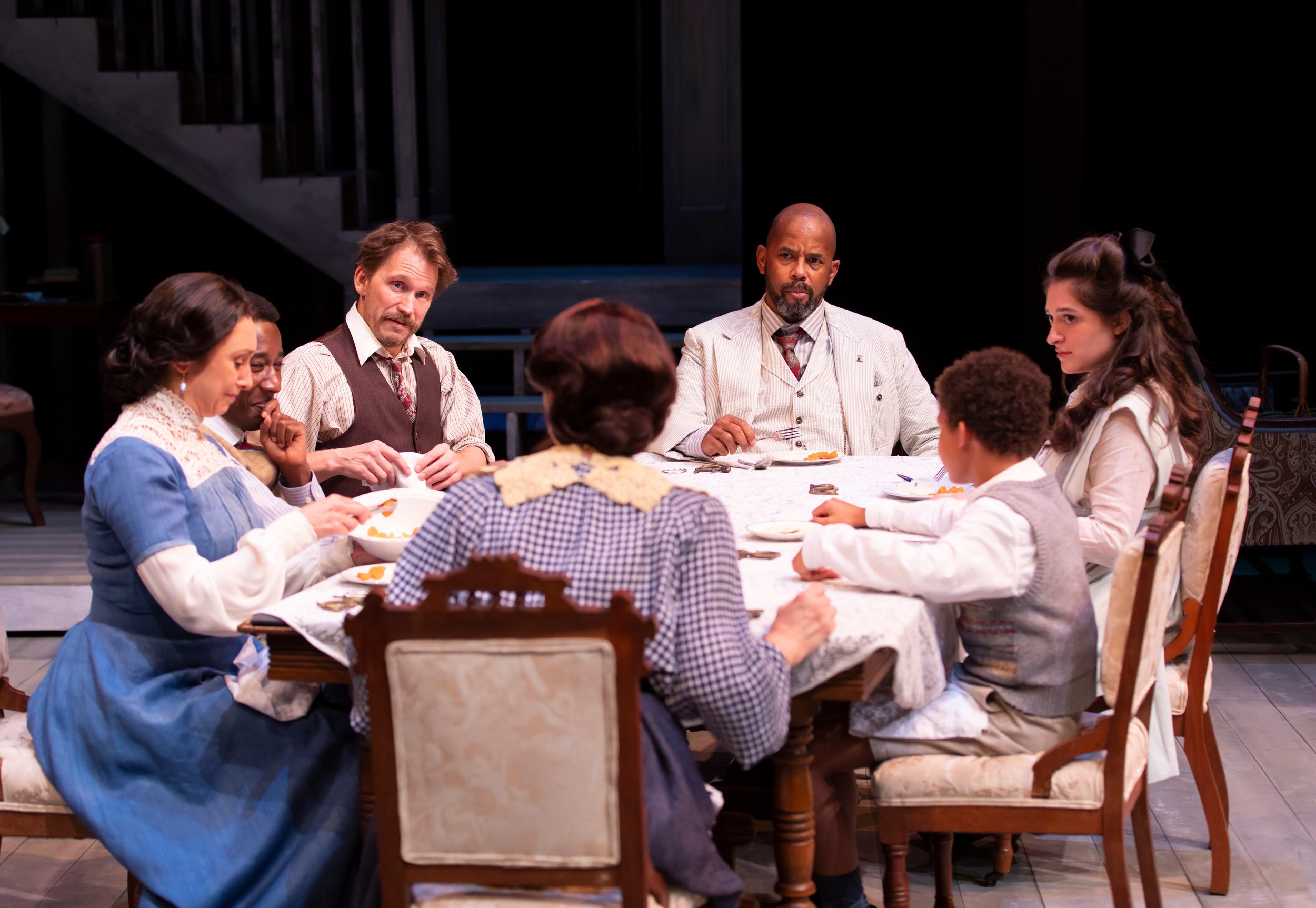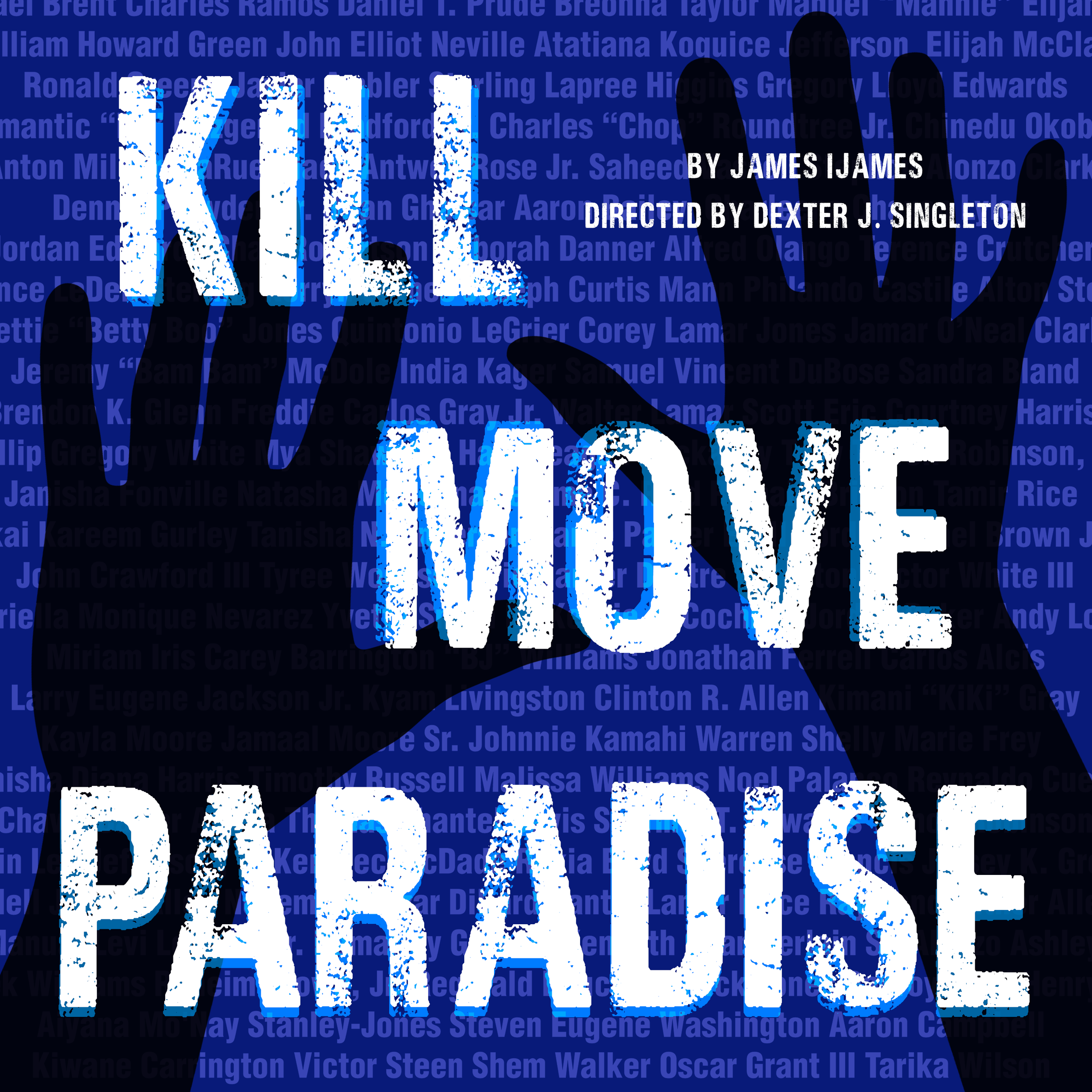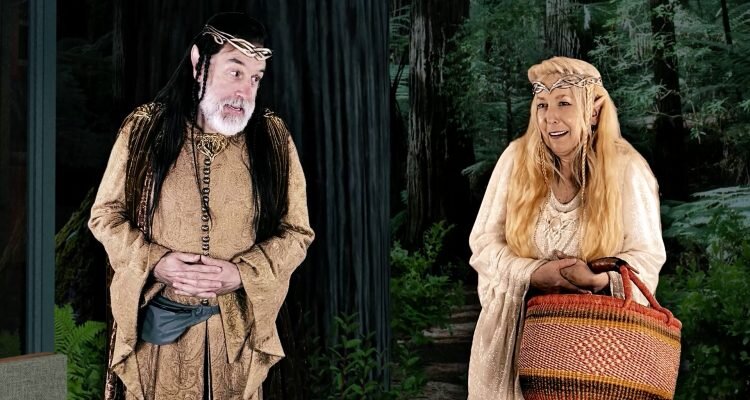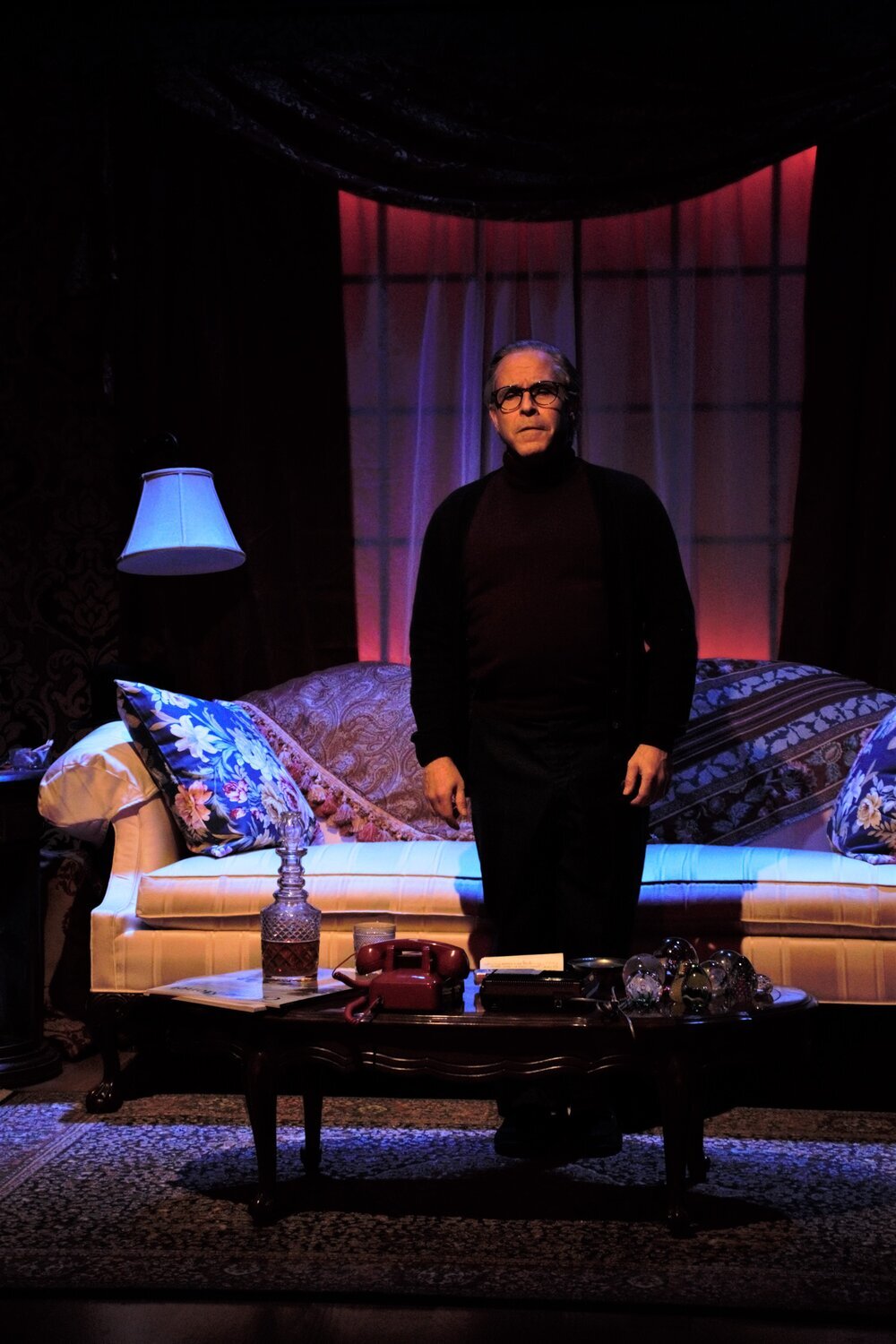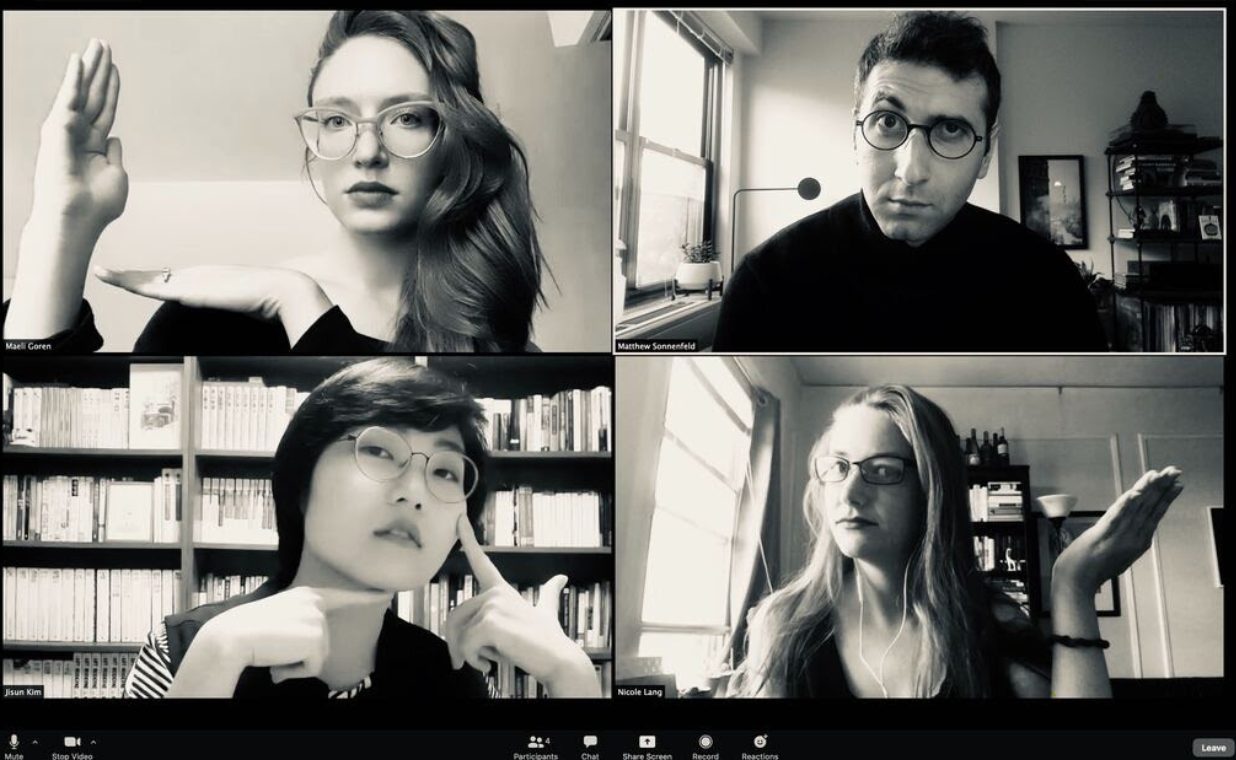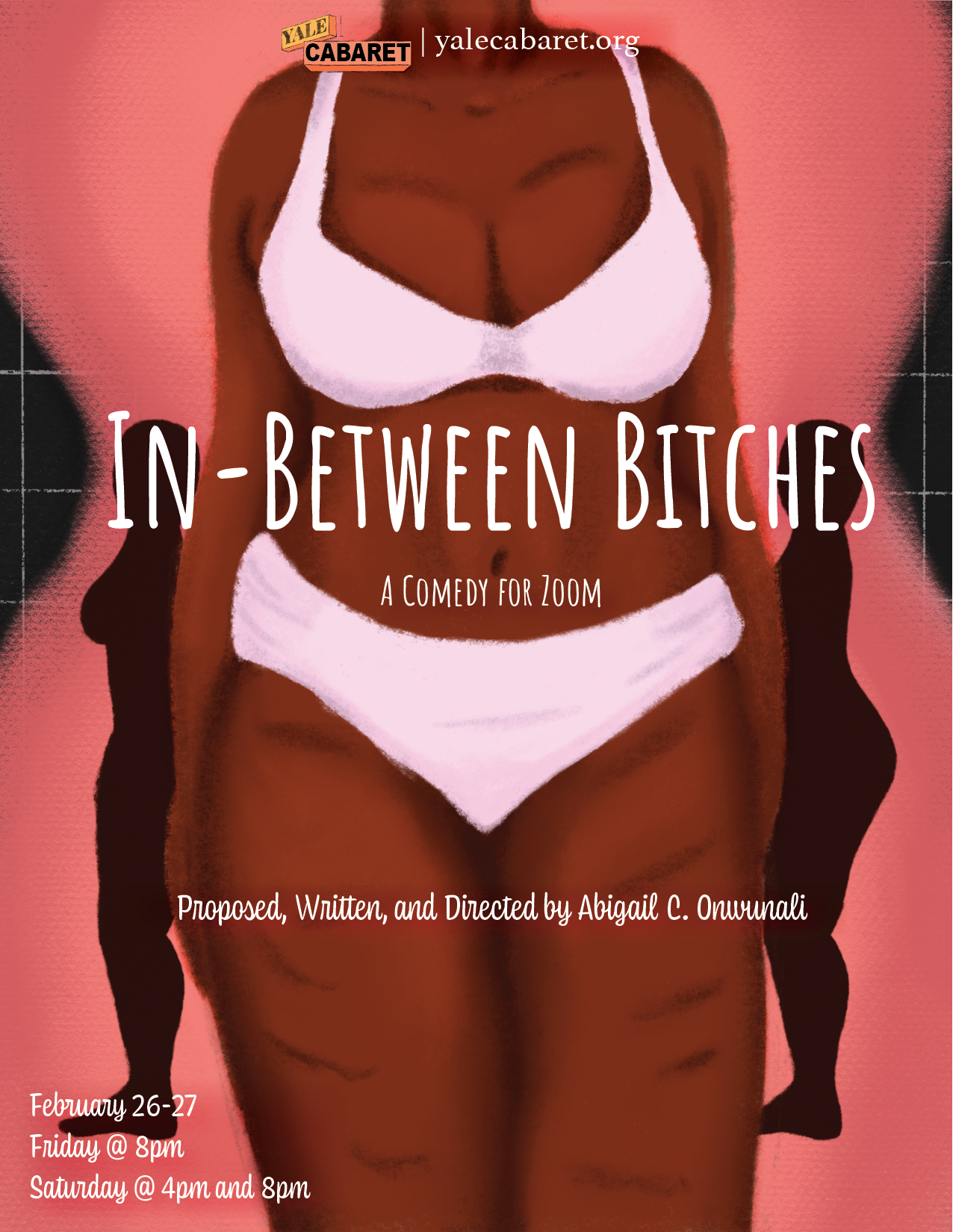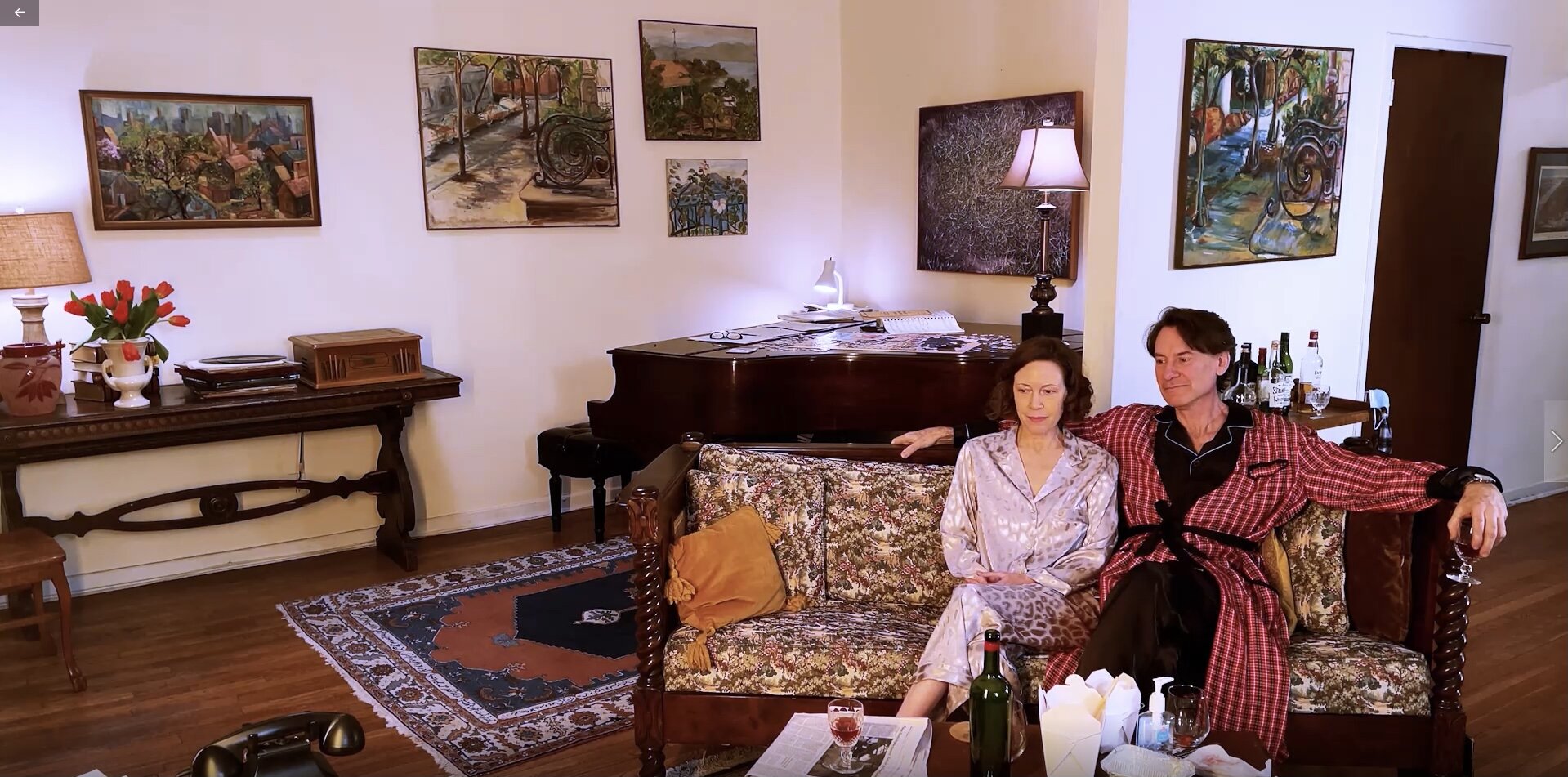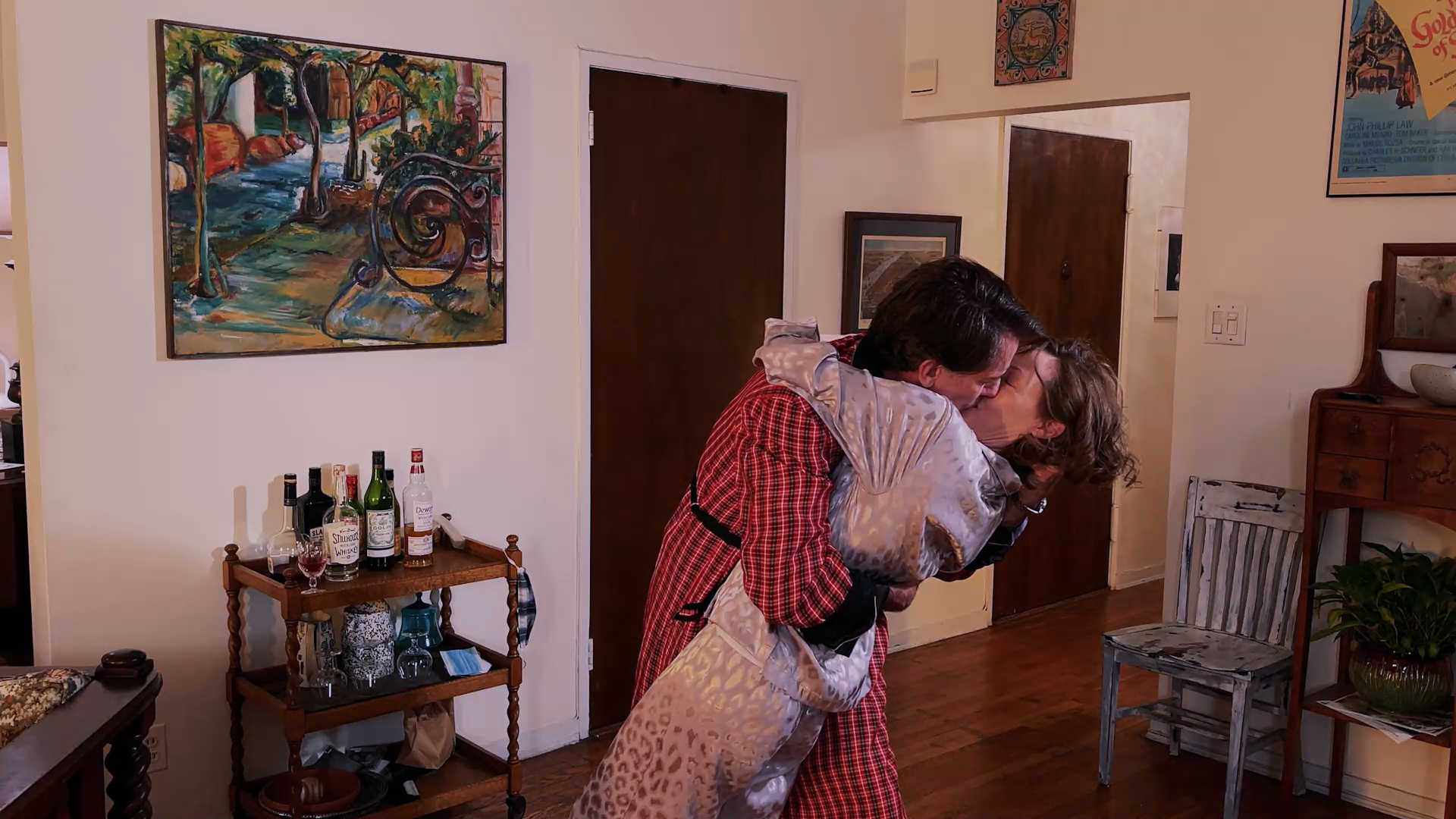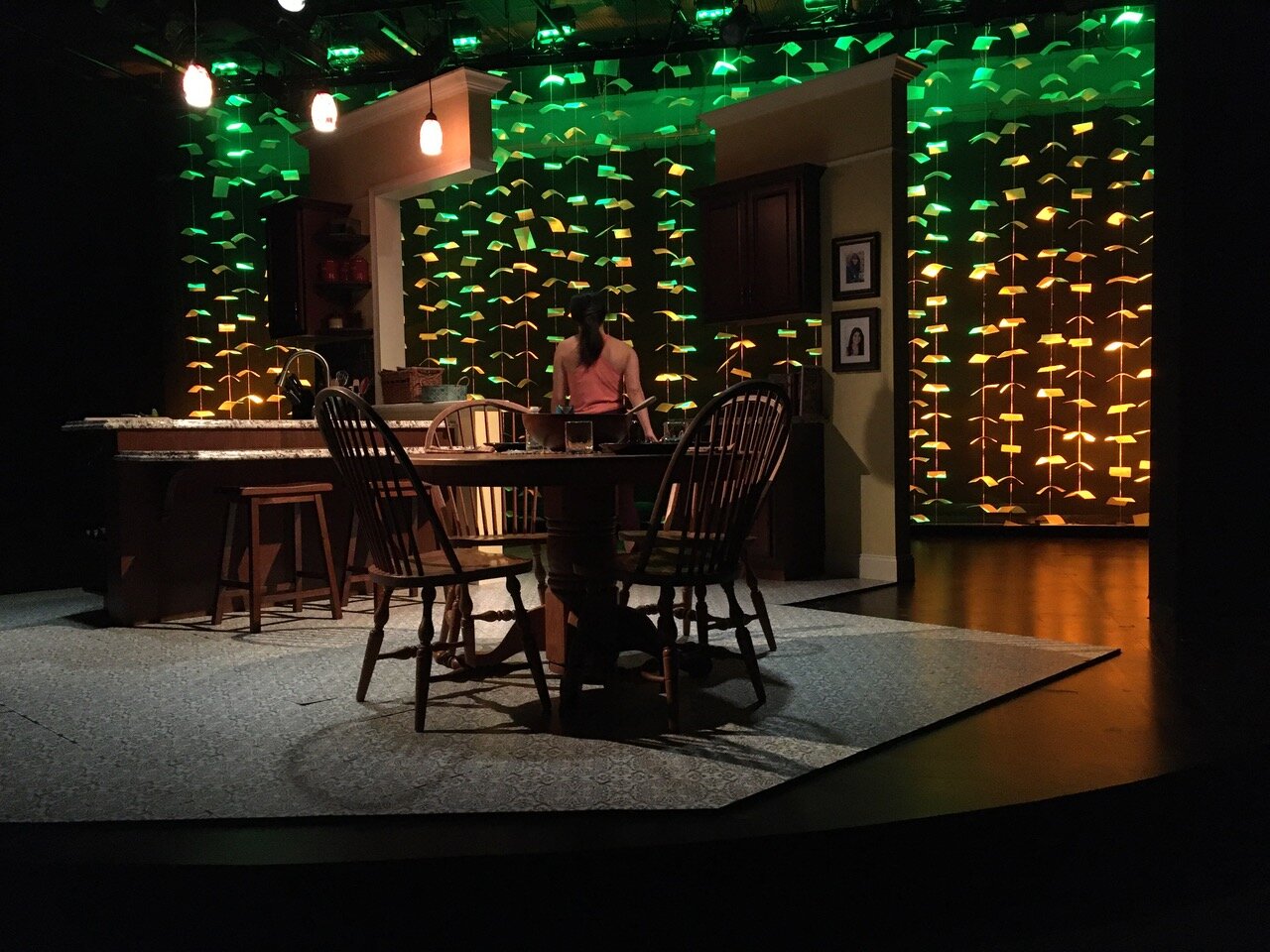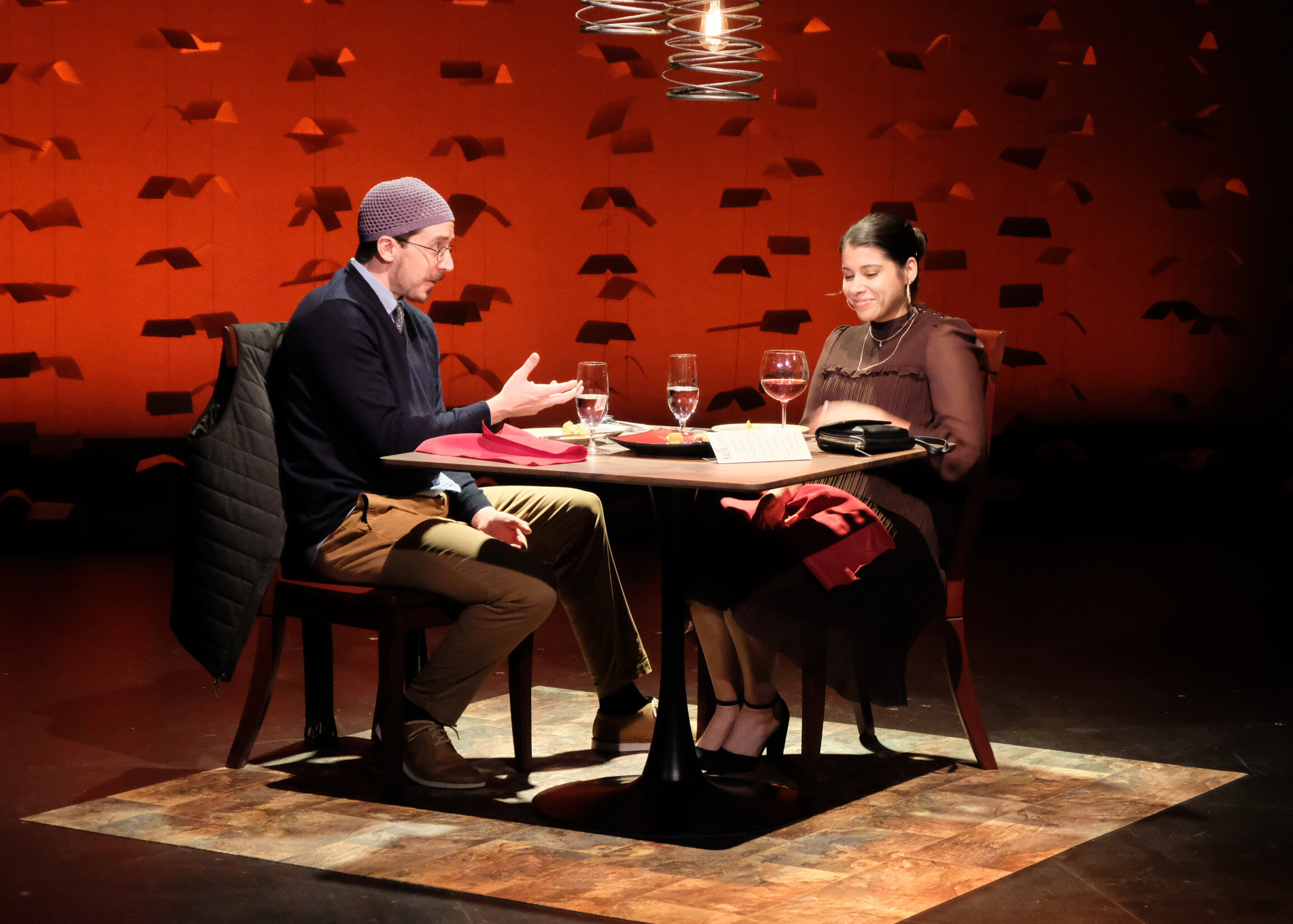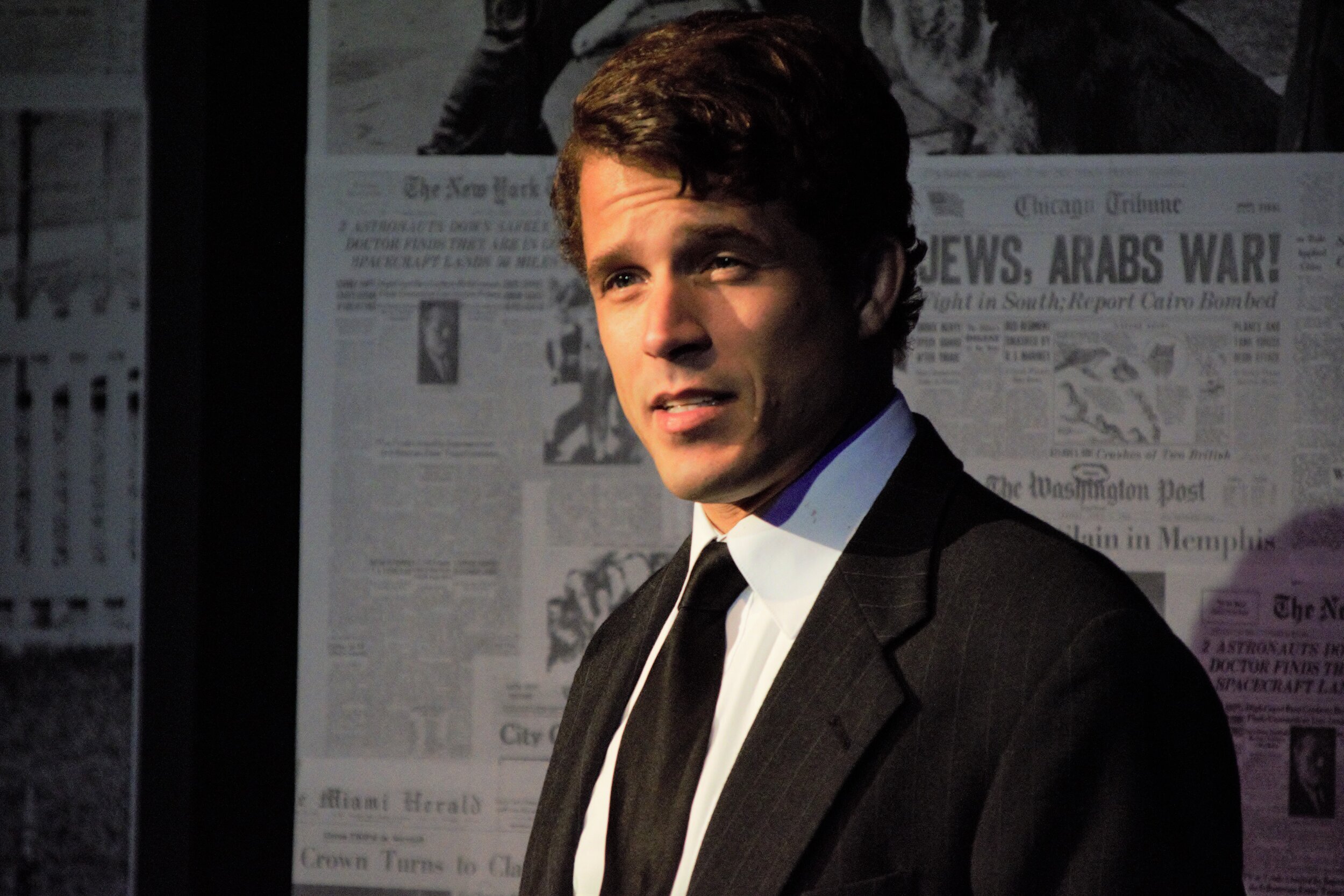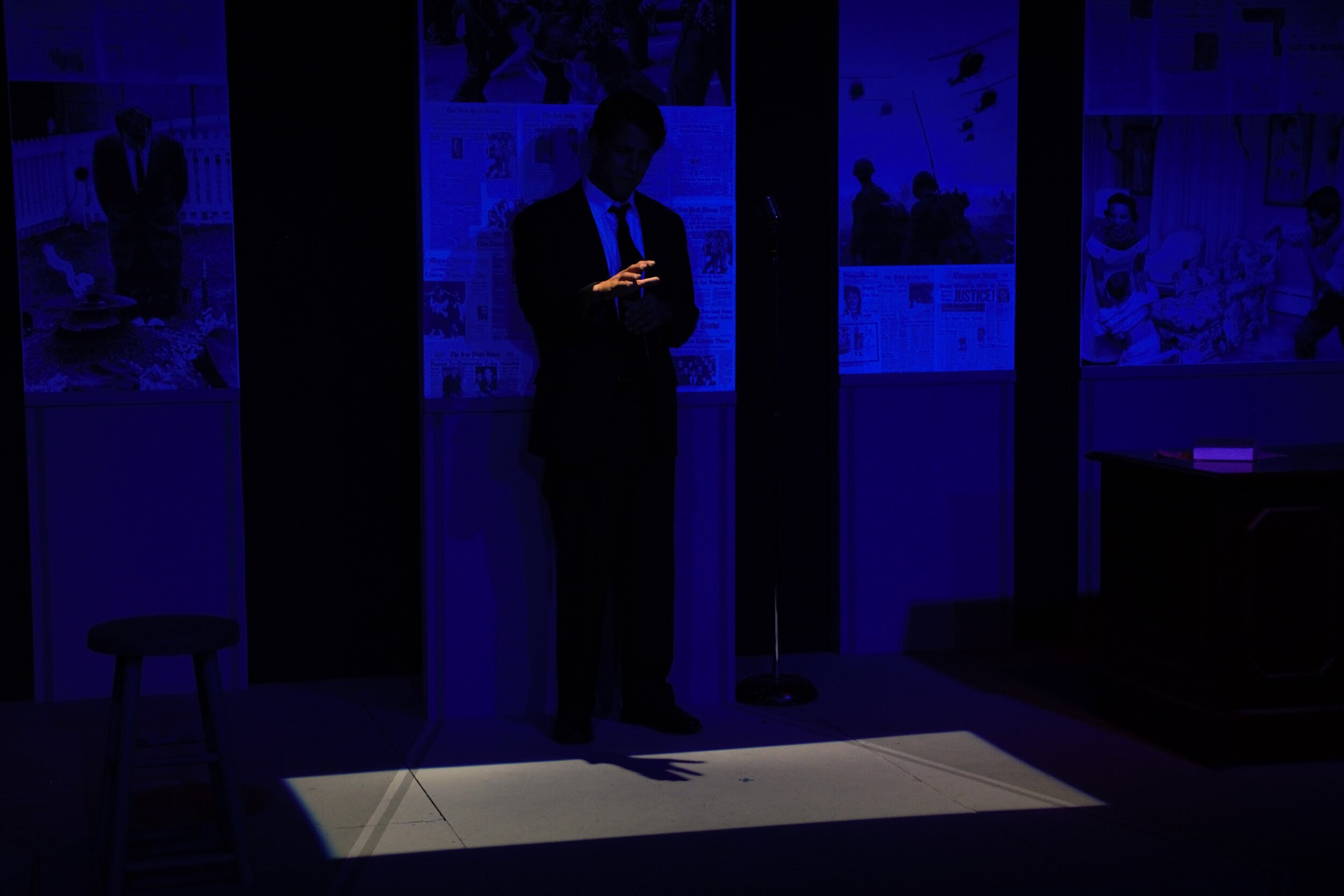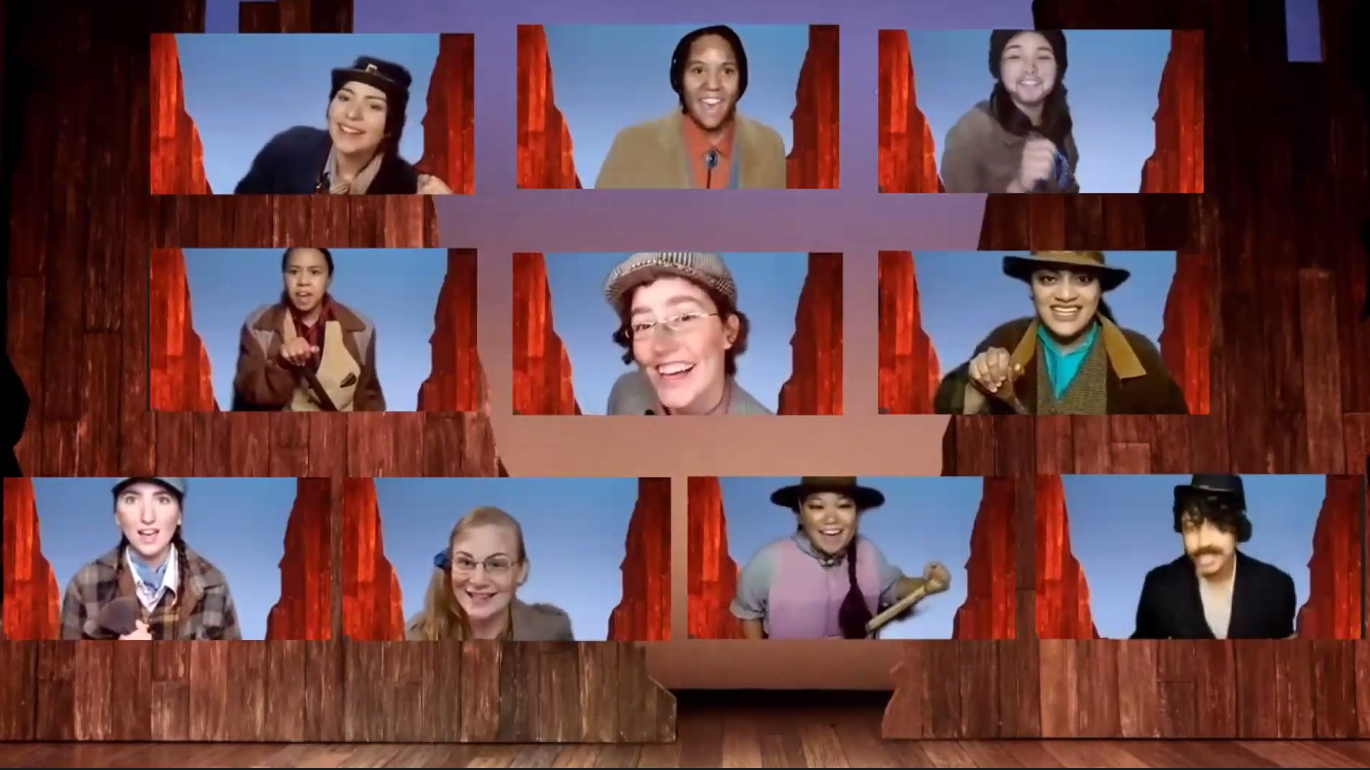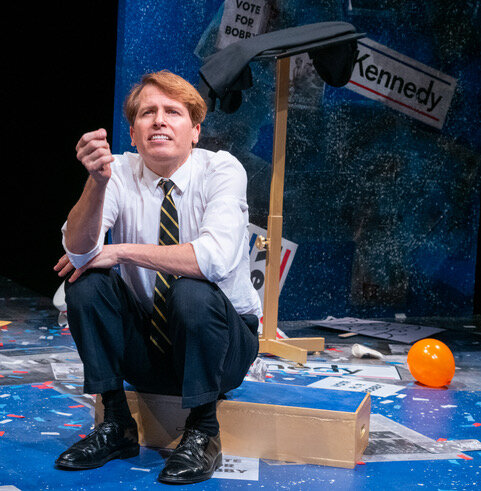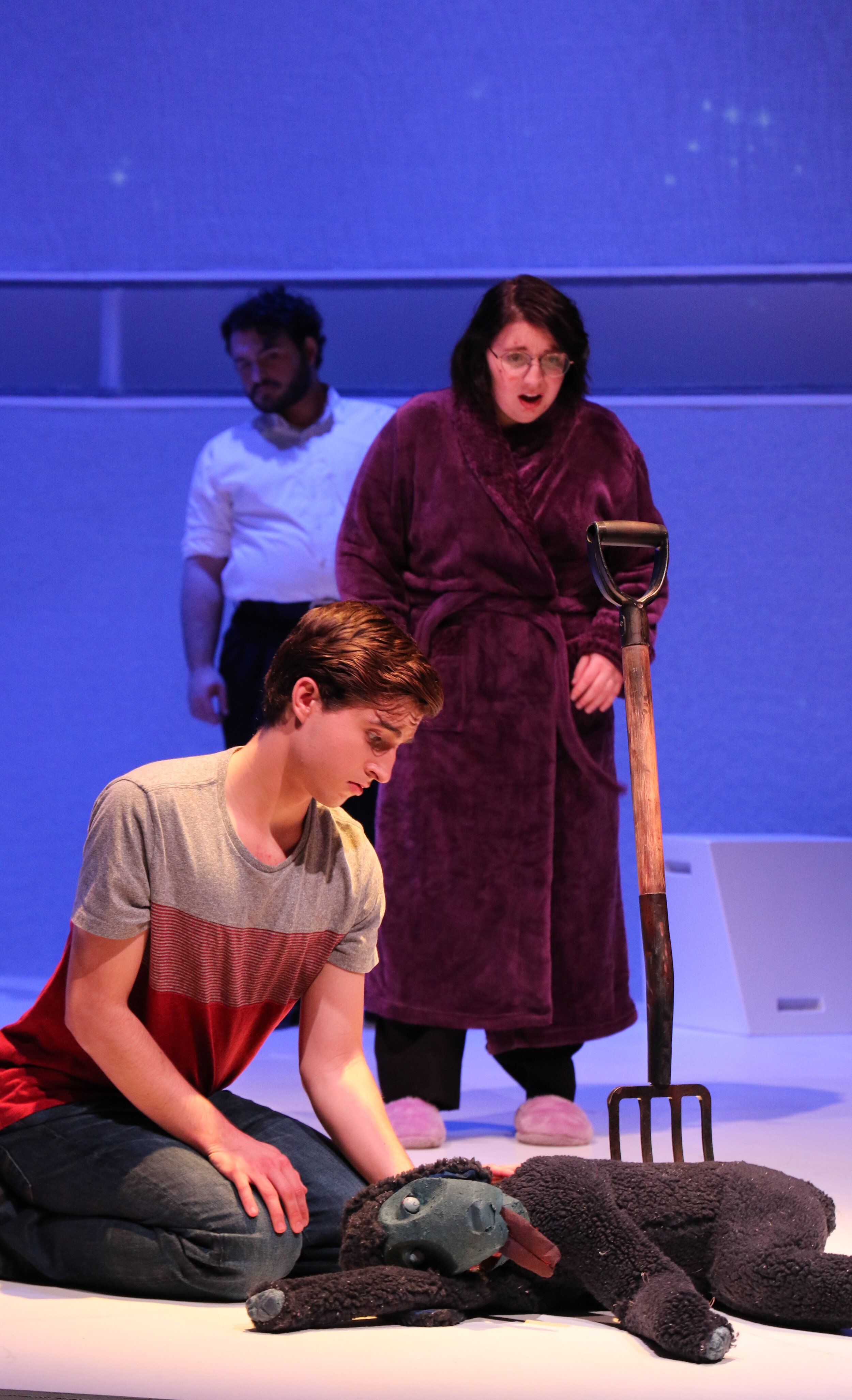Review of It’s a Wonderful Life: A Live Radio Play, at Hartford Stage
Hartford Stage’s holiday offering this year takes a break from the annual staging of A Christmas Carol—a Ghost Story in favor of a more streamlined, less effects-laden show. Instead of flying ghosts and bedecked sleighs and the full trappings of a Dickensian Christmas, we have Joe Landry’s adaptation of an American classic, It’s a Wonderful Life, the Frank Capra film from 1946 that centered on how a potential business catastrophe at Christmas cemented the values of the postwar community of Bedford Falls, NY. The film, which is generally playing somewhere on television at Christmastime, showcases James Stewart, Donna Reed, Lionel Barrymore and a host of beloved actors who have become indelible figures of a bygone small-town America. Landry’s adaptation is actually set in a radio studio as a live broadcast, so that a town’s worth of characters can be played by five skilled voice actors: Jake Laurents (Gerardo Rodriguez), Freddy Filmore (Michael Preston), Sally Applewhite (Shirine Babb), Lana Sherwood (Jennifer Bareilles) and Harry “Jazzbo” Heywood (Evan Zes), with an onstage Foley—or sound effects—artist (Leer Leary) providing crucial backup.
The cast of It’s a Wonderful Life: A Live Radio Play at Hartford Stage, directed by Melia Bensussen & Rachel Alderman; photo by T. Charles Erickson
Directed by Melia Bensussen and Rachel Alderman, the joys of the play take place on several levels. First, there’s the show-biz aspect: we’re watching ostensible radio actors ham it up for a live audience, complete with an applause sign so that the listeners at home will know we’re there and loving it. Thus, we, the audience, are playing an audience and responding accordingly. Related to that is the fact that the actors—invisible to those fictional listeners—are visible to us, even when they almost miss cues or carry on sotto voce chats in the background or one-up each other with glares and snickers or flirt with body language. And on that score, keep an eye on Lear Leery—he’s not only a one-man sound-board, he’s also an onlooker who knows the show frontwards and backwards and reacts accordingly. Then there’s the story itself, which is heartwarming and corny and quaint and magical, all at once. The radio actors know all that and also that it’s a lot of fun to do. It helps to know the story as well as the actors do (I do) but even if you don’t, you can get caught up in trying to imagine the different characters these quick-change voices bring to life. They’re all there: George and Mary Bailey, Uncle Billy, Ma Bailey, brother Harry Bailey, Old Man Potter, Mr. Gower, Mr. Martini, Violet Bick, the Bailey kids, and of course Ernie and Bert as well as a host of background voices.
Jennifer Bareilles, Shirine Babb, Michael Preston, Evan Zes and Gerardo Rodriguez in It's a Wonderful Life: A Live Radio Play; photo by T. Charles Erickson
George Bailey, chief exec at a struggling Building and Loan he inherited from his dad, is suddenly vulnerable to take over and even extortion because his daft Uncle Billy mislaid a sizable deposit that has fallen into the hands of the grasping and covetous town big wig Old Man Potter. George’s night of despair on Christmas eve earns him the intercession of “angel second class” Clarence Oddbody. The two main roles of George and Clarence are enacted by Gerardo Rodriguez as Laurents and Evan Zes as Heywood. The chemistry is good and Rodriguez brings a bit more gravitas to George than is sometimes the case. He’s a take-charge guy who we expect will battle his way out of any difficulty. Zes’s Clarence is less flighty than the original and is more like someone who has entered a movie he was watching and wants to see if his intervention will work or not. And it’s a great treat to see Michael Preston (recently Hartford Stage’s Scrooge) do the hat and voice-switching necessary to enact a heated exchange between Potter and Uncle Billy.
Leer Leary in It's a Wonderful Life: A Live Radio Play; photo by T. Charles Erickson
The first two thirds of the play provide the backstory and that’s when the radio show elements are foregrounded. It’s all got a nostalgic tinge—including ads with jingles set to Christmas tunes—and provides a spirited evocation of the effects of radio, the spectacle of live performance, and the fun of mixing both at once. What’s particularly lively in this production are how the personalities of the radio actors inflect the roles they play with their voices so that interesting frictions occur with the actors letting viewers in on their own responses to the roles (especially effective there are Bareilles and Babbs whose Applewhite and Sherwood clearly have some issues).
Evan Zes (Clarence) and Gerardo Rodriguez (George Bailey, back) in It's a Wonderful Life: A Live Radio Play; photo by T. Charles Erickson
Director Bensussen and Alderman shift the play’s mise en scene when Clarence enters the story. Trap doors and an upper platform come into use and suddenly we’re aware that we’re watching a play on the Hartford Stage, and that the show’s spatial concept extends beyond the borders of the radio studio. It’s a very effective way to register the difference of a world without George Bailey. The play has moved from being a comic evocation of familiar types and the kind of dramatized moments radio highlights with sound and music to an actual play that borders on a tragedy of lost opportunity. The world with no George in it—fighting the good fight for his community, his family and friends—is a darker, more dangerous place. Unlike the Scrooge story, where the fear of leading a selfish, wasted life shocks an old miser into generosity, the crux of It’s a Wonderful Life is that commitments and obligations are the stuff of life and anyone who has lived has affected other lives in indelible ways. The emotional tone of the play is served well by the closing sing-along of Auld Lang Syne, a tribute to the townfolks’ old acquaintance with one another and ours with them.
Jennifer Bareilles, Gerardo Rodriguez and Evan Zes in It's a Wonderful Life: A Live Radio Play; photo by T. Charles Erickson
In 1946, when It’s a Wonderful Life first played in movie theaters, there had been a loss of nearly 300,000 U.S. citizens who didn’t return from the war. As of today, the casualties from Covid-19, in the States alone, is over 800,000. The commemoration that closes the play isn’t just “sentimental hogwash,” as Mr. Potter would claim, but rather a way of saying we’re lucky to be here and we’d like to remember those who aren’t, thanking them all for their wonderful lives.
Shirine Babb in It's a Wonderful Life: A Live Radio Play; photo by T. Charles Erickson
It’s a Wonderful Life: A Live Radio Play
Adapted by Joe Landry
Based on the story, The Greatest Gift by Philip Van Doren Stern
From the screenplay by Frances Goodrich, Albert Hackett, Frank Capra, and Jo Swerling
Directed by Melia Bensussen & Rachel Alderman
Scenic Design: Stephanie Osin Cohen; Costume Design: An-Lin Dauber; Lighting Design: Evan C. Anderson; Sound Design: Frederick Kennedy; Wig & Hair Design: J. Jared Janas; Dramaturg: Zoë Golub-Sass; Production Stage Manager: Kelly Hardy
Cast: Shirine Babb, Jennifer Bareilles, Leer Leary, Michael Preston, Gerardo Rodriguez, Evan Zes
Hartford Stage
November 26-December 26, 2021
